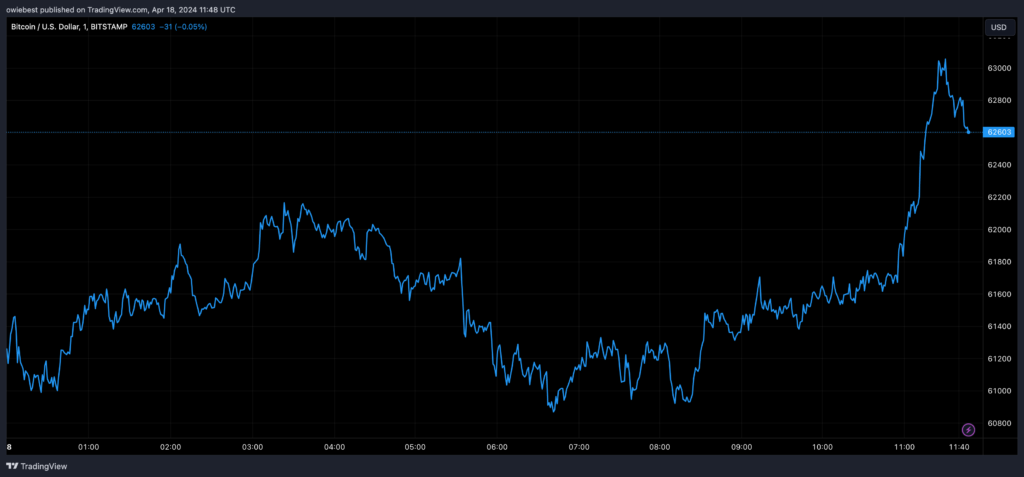Experts from Goldman Sachs, a well-known global banking and investment management company, have spoken out about the upcoming half of Bitcoin and how it might affect the price of the cryptocurrency. Even though they agree that the event was important, they think that other prevalent factors will likely have a bigger impact on Bitcoin’s future.
In a message to clients, Goldman Sachs analysts warned against putting too much weight on the past patterns of BTC halving cycles and how they directly affect the value of the cryptocurrency. Analysts say that the current market’s supply and demand factors will have the most impact on Bitcoin’s future performance. In the past, cycles have often led to bullish trends in the price.
Bitcoin Halving’s Macroeconomic Impact
They also said that the rising interest in Spot Bitcoin Exchange Traded Funds (ETFs) and the fact that the crypto market is naturally reactive would be major factors affecting Bitcoin’s price in the future.
Similar to what others have said, CryptoQuant analysts have said that the upcoming halving of BTC in 2024 might not be the main cause of a bullish rise. As an alternative, they said that Bitcoin’s rise was caused by things like higher demand from institutional buyers and less supply.
Analysts at Goldman Sachs also talked about how inflation and other macroeconomic factors might affect the upcoming split of BTC. They warned against drawing straight comparisons with previous cycles, pointing out that the current macro conditions might be different from those in the past.
The current economic situation is different from previous halving cycles because of high interest rates and strong inflationary pressures. This may have a different effect on the result of the 2024 BTC halving. So, the experts say that for historical halving-caused bull runs to happen, the economy as a whole needs to be in a good place.
Even with these problems, a lot of people still see Bitcoin as a strong defense against inflation and a sign of hope in times of rising inflation. This shows how strong and appealing it is in difficult economic times.










